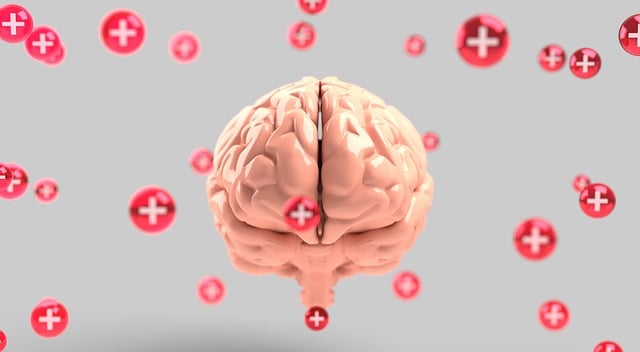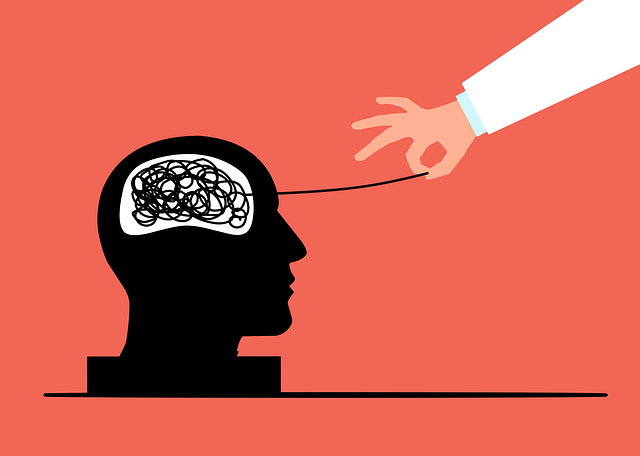In the dynamic healthcare landscape, Cultural Competency is crucial for effective patient-centered care, especially in diverse communities like Arvada where stress management therapy is popular. Arvada Stress Management Therapy (ASMT) bridges cultural gaps by combining traditional healing with modern techniques to tailor support. Training should be interactive, focusing on real-world scenarios and evidence-based practices, and include workshops, case studies, and role-playing. Evaluating the effectiveness of cultural competency training through pre/post assessments and patient outcomes measurement ensures desired impacts, enhancing care for diverse populations.
Cultural competency training is an essential component of modern healthcare, aiming to bridge the gap between diverse patient populations and medical services. This article explores the critical need for such training, highlighting how cultural biases can impact patient care and outcomes. We present a case study of Arvada Stress Management Therapy, demonstrating successful cultural sensitivity in practice. Additionally, we discuss strategies for designing effective training programs and methods for measuring the success of cultural competency initiatives.
- Understanding Cultural Competency in Healthcare: A Necessary Approach
- The Impact of Cultural Biases on Patient Care and Outcomes
- Arvada Stress Management Therapy: A Case Study in Cultural Sensitivity
- Designing Effective Training Programs for Healthcare Providers
- Measuring and Evaluating the Success of Cultural Competency Initiatives
Understanding Cultural Competency in Healthcare: A Necessary Approach

In the ever-evolving landscape of healthcare, Cultural Competency has emerged as a vital aspect that goes beyond treating symptoms. It involves understanding and respecting diverse cultural beliefs, values, and practices to deliver patient-centered care, especially in communities like Arvada where stress management therapy is in high demand. This approach ensures that healthcare providers can effectively communicate with patients from various ethnic backgrounds, bridging the gap between medical expertise and cultural sensitivity.
The necessity for such training cannot be overstated, particularly when addressing mental health concerns. Self-esteem improvement and Mental Health Policy Analysis and Advocacy are often influenced by cultural nuances. By incorporating cultural competency training, healthcare professionals can facilitate better patient engagement in self-care practices, fostering a more inclusive and effective therapeutic environment. This is crucial in ensuring that every individual receives respectful, accessible, and culturally sensitive mental health services.
The Impact of Cultural Biases on Patient Care and Outcomes

Cultural biases held by healthcare providers can significantly impact patient care and outcomes, particularly for individuals from diverse backgrounds. These biases, often unconscious, can lead to miscommunications and misunderstandings between patients and caregivers, hindering effective treatment. For instance, a provider’s assumptions about a patient’s lifestyle or adherence to medical advice based on cultural norms may result in inadequate care plans. In the case of Arvada Stress Management Therapy, understanding a patient’s cultural context is crucial for tailoring treatments that address their unique stressors and promote well-being.
Empathy building strategies and social skills training are essential tools to mitigate these biases. By fostering deeper connections and enhancing communication, healthcare providers can offer more personalized care. Moreover, addressing burnout prevention through comprehensive training programs can help maintain a level of cultural sensitivity necessary for quality patient interaction. These efforts contribute to improved patient satisfaction and health outcomes, ensuring that all individuals receive equitable and respectful care regardless of their cultural background.
Arvada Stress Management Therapy: A Case Study in Cultural Sensitivity

Arvada Stress Management Therapy (ASMT) is a pioneering initiative that exemplifies cultural sensitivity in healthcare. This program focuses on helping individuals from diverse backgrounds manage stress, offering tailored support to meet their unique needs. By recognizing and addressing cultural barriers, ASMT ensures effective treatment, fostering an inclusive environment. The therapy incorporates traditional healing practices alongside modern techniques, creating a harmonious blend of care.
Through interactive workshops, the organization facilitates the development of coping skills and self-care practices, empowering participants to navigate stress in culturally sensitive ways. ASMT’s success lies in its ability to bridge cultural gaps, making evidence-based interventions accessible and relevant to diverse communities. This case study highlights the power of adapting healthcare services to local contexts, ultimately improving patient outcomes and community well-being.
Designing Effective Training Programs for Healthcare Providers

Effective training programs for healthcare providers must be tailored to address diverse cultural needs in a comprehensive manner. These programs should incorporate interactive workshops, case studies reflecting real-world scenarios, and role-playing exercises to engage participants actively in learning. By integrating evidence-based practices such as Compassion Cultivation Practices and Mental Health Education Programs Design, trainers can foster an environment that encourages empathy, understanding, and effective communication between healthcare providers and patients from various cultural backgrounds.
Furthermore, incorporating Arvada Stress Management Therapy into the curriculum equips healthcare professionals with tools to manage their own stress levels, ensuring they remain empathetic and present during interactions with diverse patients. Mental Health Policy Analysis and Advocacy should also be woven into the fabric of these programs, empowering healthcare providers to advocate for policies that promote cultural competency and equitable access to mental health care services within their communities.
Measuring and Evaluating the Success of Cultural Competency Initiatives

Evaluating the effectiveness of cultural competency training is crucial for healthcare providers to ensure their initiatives are achieving desired outcomes and positively impacting patient care. This involves assessing both the knowledge acquisition and behavioral changes among participants. One way to measure success is through pre- and post-training assessments, gauging improvements in cultural awareness, bias recognition, and communication skills. These assessments can include self-report questionnaires, role-play scenarios, or case studies designed to capture changes in attitudes and practices.
Additionally, ongoing monitoring of patient outcomes, such as satisfaction rates, adherence to treatment plans, and health outcomes, can provide valuable insights. By comparing these metrics before and after cultural competency programs, healthcare organizations can identify the initiatives that foster meaningful improvements in care delivery, particularly for diverse patient populations. For instance, Arvada Stress Management Therapy might track participant progress in mindfulness meditation and emotional regulation through self-reported journaling exercises, alongside measuring general mental wellness outcomes to demonstrate the practical application of cultural competency training.
Healthcare provider cultural competency training is not just a desirable practice, but an essential one. As highlighted by the case study on Arvada Stress Management Therapy, culturally sensitive care significantly improves patient outcomes. Effective training programs, backed by robust measurement and evaluation methods, can help healthcare providers navigate diverse patient populations with empathy and expertise. By addressing biases and fostering understanding, these initiatives ensure equitable access to quality care for all.












